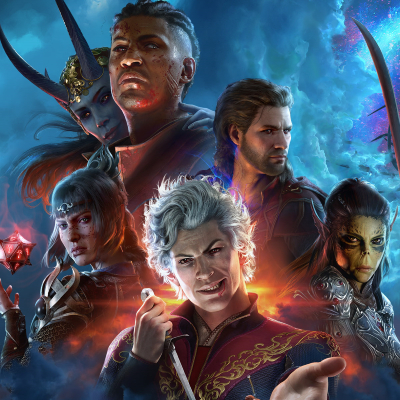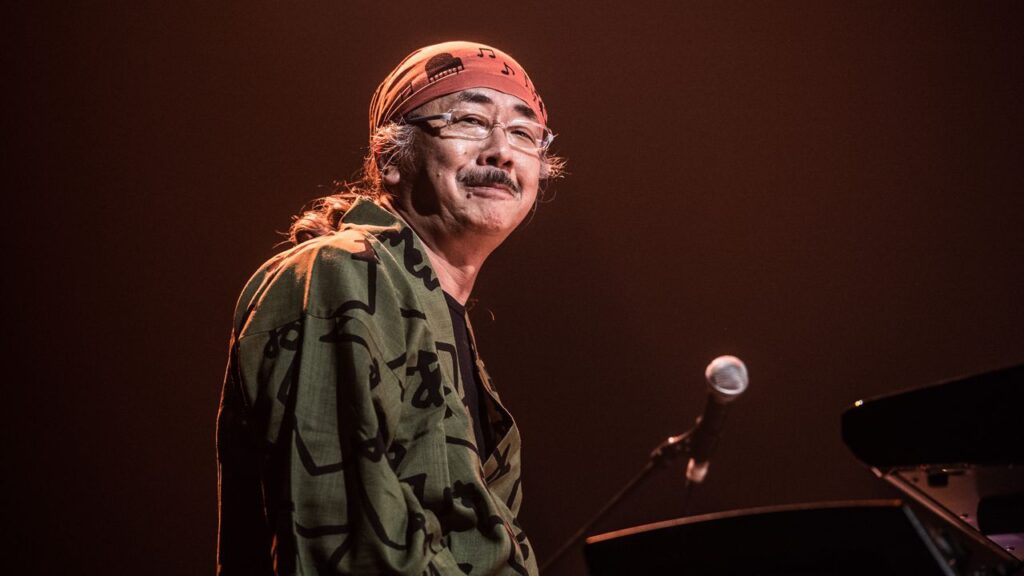As reported by Automaton, iconic video game composer Nobuo Uematsu, best known for his work on the Final Fantasy series, has recently given his take on the state of videogame music. In an interview with Japanese outlet Real Sound, Uematsu commented on where the industry is now, particularly concern about creative freedom for composers being stifled.
“I won’t go as far as to call it stagnation, but I believe directors and producers hold too much power in their hands even when it comes to the music,” said Uematsu, according to Automaton’s translation. “Even now, game composers aren’t in a position to speak their opinion freely, and no matter how much musical knowledge or technical skills they possess, they’re still in a position where it’s difficult to speak their mind.
“There are almost no game producers who are well versed in worldwide entertainment and are familiar with a wide variety of musical genres, so anything goes for them as long as you make it sound like a John Williams movie soundtrack.”
Uematsu compared the situation to the game music industry back in the NES era of the 80s. Back then, few composers had their eye on making music for games, but that has changed dramatically over the course of Uematsu’s career.
According to Uematsu, the industry has gone from giving game composers little attention to stifling composer’s creativity or pushing them toward a narrow type of sound (often a John Williams style). As a result of that, Uematsu added that, “Frankly speaking, there’s less ‘weird things’ now.”
Uematsu didn’t seem too pessimistic about the future of game music, though. He’s an avid fan of Elton John and cited the pop-rock artist’s ability to create great music while still prioritizing commercial success. He sees this as evidence that it’s possible to work with the demands of game directors and producers without compromising creativity.
With that said, Uematsu seems to be exclusively addressing professional development in this interview, and likely has Japanese developers in mind. This makes sense given it’s the area of the industry he operates in, but we’d be remiss if we didn’t mention how much good, weird music there still is in games, particularly independent ones.
Pizza Tower’s Sega-style beats, Hollow Knight’s haunting strings, the slick rock tracks in Hades, and Skald: Against The Black Priory’s DOS soundcard-inflected fantasy score all spring to mind.
Uematsu suggested aspiring game composers keep trying new things, saying, “If you make the same stuff as John Williams and grow complacent with that, you’ll get nothing more from it. Now, what if someone put a bit of techno in there – what kind of sound would it become then? I believe that would be a good way to approach music.”

2025 games: This year’s upcoming releases
Best PC games: Our all-time favorites
Free PC games: Freebie fest
Best FPS games: Finest gunplay
Best RPGs: Grand adventures
Best co-op games: Better together




It’s interesting to hear Nobuo Uematsu’s perspective on the current state of game music. His contributions have shaped so much of what we love about video game soundtracks, and it’s always valuable to reflect on how the industry evolves.
It’s definitely valuable to get insights from someone with such a rich history in the industry. Uematsu’s work has always pushed boundaries, and it’s a reminder of how innovative soundtracks can elevate gaming experiences. Hopefully, this prompts more composers to explore unique sounds and styles!
Absolutely, Uematsu’s perspective highlights how the evolution of game music reflects broader trends in the gaming industry. It’s interesting to think about how innovation in soundtracks could enhance storytelling in games, just as it has in films.
You make a great point! It’s interesting to consider how the commercial pressures in the gaming industry might limit creative experimentation. Uematsu’s work often pushed boundaries, and it would be refreshing to see more innovation in contemporary game soundtracks.
You make a great point! It’s interesting to consider how the commercial pressures in the gaming industry might limit innovation in music. It would be fascinating to see game developers take more risks with soundtracks, much like some indie games do, which often embrace unique and experimental compositions.
Thank you! It’s true that commercial pressures can shape creativity, but it’s also fascinating to see how indie games often push boundaries with their soundtracks. They might be a source of fresh, innovative ideas that challenge the status quo in game music.
Thank you for sharing your thoughts! It’s interesting to consider how the balance between commercial demands and artistic expression has shifted over the years. Uematsu’s perspective highlights the importance of innovation in game music, which can truly elevate the gaming experience.
Thank you for your reply! I agree, the commercial aspect can really influence creativity in game music. It’s fascinating how some of the most memorable tracks often broke traditional norms, adding a unique flavor to the gaming experience.
You’re welcome! It’s true that commercial pressures can often limit experimentation. It’s interesting to think about how the rise of indie games has brought some unique music styles back into the spotlight, showcasing a wider range of creative expression.
I completely agree! It’s fascinating how the balance between creativity and commercial viability can shape the music we hear in games. Uematsu’s perspective highlights the importance of encouraging more innovative approaches to keep the artistry alive.
I totally get where you’re coming from! It’s interesting how the industry’s focus on certain formulas can sometimes overshadow more experimental sounds. Uematsu’s perspective highlights the need for innovation to keep the music fresh and engaging.